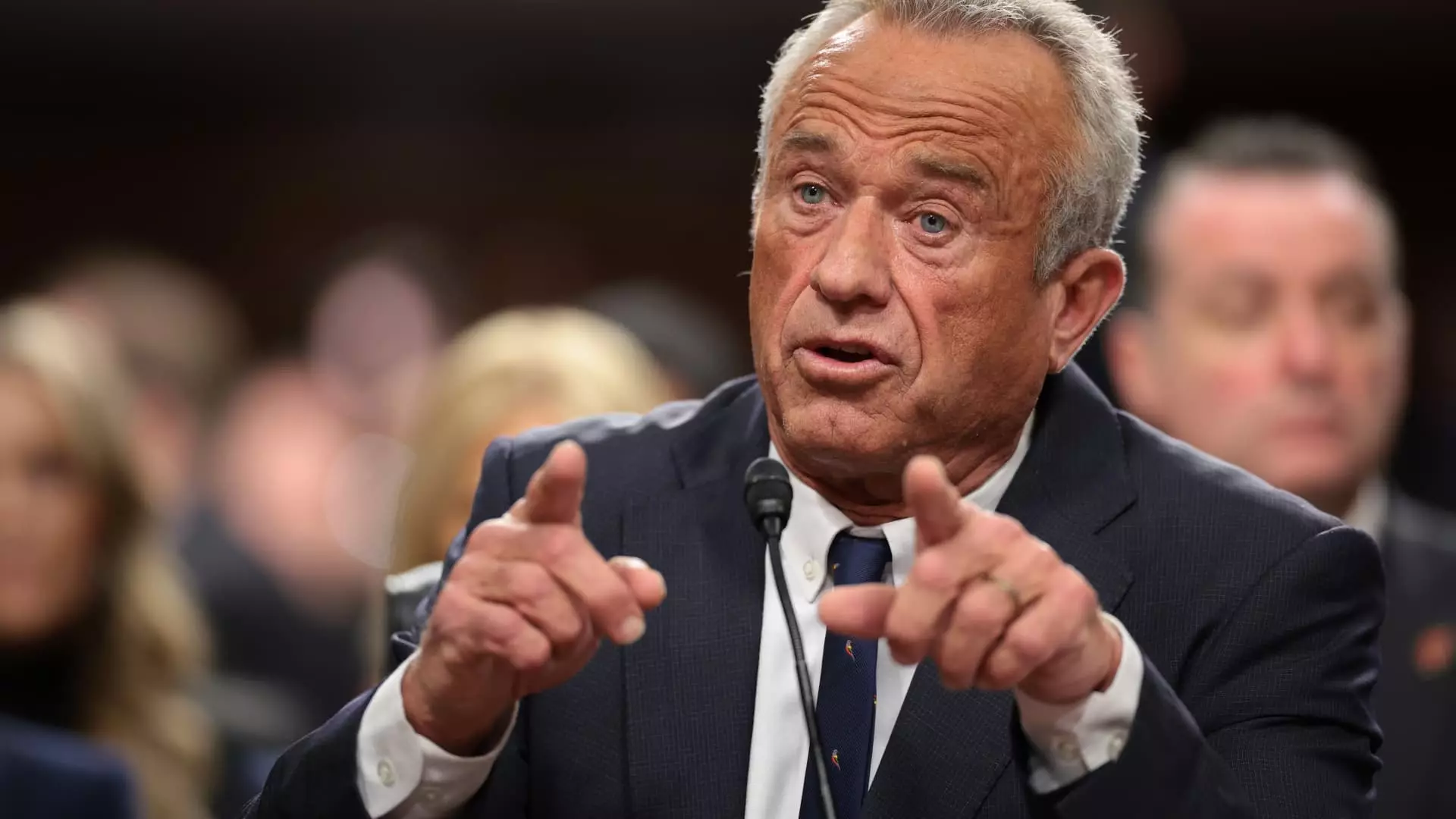The recent meeting between Health and Human Services Secretary Robert F. Kennedy Jr. and top food executives has raised significant eyebrows and concerns among health experts and consumers alike. While Kennedy’s stance on eliminating “the worst ingredients” from food might seem commendable at face value, there are critical underlying implications that must be examined. With an administration that emphasizes an aggressive stance against artificial additives, particularly dyes known for their potential health hazards, the question arises: Is this approach truly aligned with improving public health, or does it pose new risks in itself?
Kennedy’s declaration to target artificial dyes reflects a broader narrative that pits him against established food safety protocols and scientific consensus. Proponents of the food industry have often relied on data from regulatory agencies that deemed certain ingredients safe. By disregarding extensive scientific reviews to cater to populist sentiment, Kennedy risks undermining the very foundations of food safety that aim to balance public health with consumer choice.
Collaborative or Coercive? The Tone of Engagement
The tone of Kennedy’s discussions with food executives was reportedly constructive, suggesting a willingness to collaborate for better public health outcomes. However, the veiled threat that he would take action if the industry doesn’t comply raises alarms about government overreach in business practices. Such an approach may inhibit innovation within the food sector, leading to a reactive rather than proactive food landscape. While urging food companies to facilitate cleaner labels and healthier products is well-intentioned, Kennedy’s ultimatum could stifle the very dialogue necessary for meaningful reform.
Trade groups, including the Consumer Brands Association, have found value in these discussions, positioning them as a first step toward a healthier food system. Yet, the reliance on dialogue is precarious when faced with the looming threat of regulatory action—a scenario that often leads to compliance over collaboration. A fear of reprisal can cloud constructive conversations and lead to superficial change rather than a deep-rooted commitment to food quality and safety.
Disruption of Trust in Science
Kennedy’s skepticism towards vaccines—evidenced by his agenda to reevaluate immunization policies—further complicates his credibility as a health advocate. Merging these anti-vaccine sentiments with food policy creates a compounded impact on public trust in scientific expertise. By portraying established science as corrupt or untrustworthy, Kennedy may unintentionally encourage a culture of skepticism that extends beyond food and into critical health decisions.
Consumers deserve transparency, but they also require confidence in the underlying research that informs public health policy. If they begin to view food safety regulations through the lens of conspiracy, as Kennedy has framed vaccine policies, the overall public health narrative risks being undermined.
Negative Impacts on Consumer Choices
The urgency expressed by Kennedy to remove artificial dyes from the food supply overlooks a key aspect: consumer choice. Many individuals appreciate a range of food options, which includes products using artificial ingredients. By narrowing choices based solely on purported health hazards without considering the contextual risks, Kennedy limits the autonomy of consumers to make informed decisions based on their unique preferences and judgments.
Moreover, restricting certain food ingredients does not inherently translate to a healthier diet. Shifting the focus to the removal of specific additives without promoting a holistic approach to nutrition is akin to addressing symptoms rather than underlying causes of health issues. In doing so, Kennedy risks alienating consumers who prefer variety, even if those options include controversial ingredients.
The Path to Hyper-Regulation
Kennedy’s aggressive approach opens the door to hyper-regulation that could stifle not only the food industry but also small-scale producers who may struggle to adapt to the rapid demands for reform. As large corporations navigate the changing landscape with resources and lobbyists, smaller businesses could be left without a competitive edge. The cascading effect of such overregulation may lead to reduced market competition and higher prices for consumers, ultimately achieving the opposite of Kennedy’s stated goals.
With public health at stake, the method by which it is pursued is crucial. The question remains whether Kennedy’s administration will foster genuine cooperation with the food industry or push an agenda that hinders innovation and consumer choice. Amid a landscape rich with opportunity for collaboration, it is vital that food policies are crafted with nuance rather than with knee-jerk reactions tailored to appeal to public sentiment.

